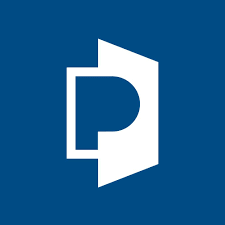Is Medical Biller and Coder a Good Job? Pros and Cons

Choosing a career path can be a daunting task, especially when there are so many options available. If you have an interest in healthcare and enjoy working with numbers, a career as a medical biller and coder might be worth considering. In this blog post, we will explore the pros and cons of being a medical biller and coder, as well as the essential skills and qualifications required for this profession. We will also discuss the career outlook and factors to consider before deciding on this career path.
Career Outlook for Medical Biller and Coder
The career outlook for medical billers and coders is promising. According to the Bureau of Labor Statistics, employment of medical records and health information technicians, which includes medical billers and coders, is projected to grow 8 percent from 2019 to 2029, much faster than the average for all occupations. This growth is attributed to the increasing demand for healthcare services and the need to digitize patient records.
Factors to consider before deciding on a career as a Medical Biller and Coder
Before pursuing a career as a medical biller and coder, there are several factors to consider:
-
Work Environment: Medical billers and coders typically work in office settings, either in healthcare facilities or remotely. It is important to assess whether this type of work environment is suitable for your preferences and lifestyle.
-
Job Satisfaction: Reflect on whether you would find fulfillment in the tasks involved in medical coding and billing. Consider your interests, strengths, and long-term career goals.
-
Training and Education: Research different training programs and educational institutions that offer medical billing and coding courses. Look for reputable programs that provide comprehensive training and prepare you for industry certifications.
-
Career Advancement Opportunities: Consider the potential for career growth and advancement in the field. Look into opportunities for specialization, additional certifications, and potential for higher salaries.
Final Thoughts
In conclusion, a career as a medical biller and coder can be a good fit for individuals interested in healthcare and possessing strong analytical and attention-to-detail skills. The job stability, flexible work options, and competitive salary make it an attractive career choice. However, it is important to consider the repetitive nature of the work, high accuracy requirements, and ongoing education requirements. Assessing your skills, interests, and long-term goals can help you determine if this career path aligns with your aspirations. If you're interested in pursuing a career as a medical biller and coder, platforms like Dreambound can help you find the perfect training program to kickstart your journey. Dreambound is the largest platform for students to find vocational training programs, such as allied health or industrial trades. Their mission is to provide all the information students need to find the perfect class.
With Dreambound, find comprehensive guides that make starting in this field easier, each suited to a specific state. If you're doing research for this vocation, our other guides may be able to help.
Exploring diverse professional options? Dreambound has comprehensive guides to assist you in making well-informed decisions. Take a look at these resources:

Fel is a student support representative who guides enrollees to the right program and answers their queries. She's committed to helping students and takes pride in her work. In her free time, she enjoys sightseeing and hanging out with loved ones.




